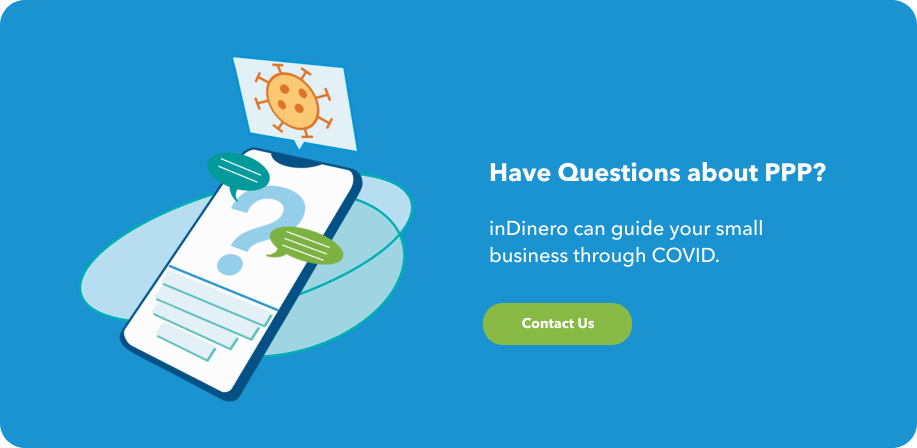Like so much of life these days, the Paycheck Protection Program (PPP) is unprecedented. Never before has so much money been loaned out to so many businesses so quickly. Equally astonishing is the fact that the government has agreed to forgive the loans for qualifying borrowers.
However, unprecedented also means untested, uncertain—and perhaps unfeasible. It’s no surprise that a program this big and this hastily rolled out has had numerous issues, limitations, and controversies.
The PPP Hasn’t Been P-P-Perfect
First, the PPP ran out of money. Then many lenders stopped accepting new applications. Meanwhile, numerous businesses were turned down, while others experienced administrative problems and delays in receiving their funds. And recently, the US Treasury Department’s list of organizations that received funding under the PPP has raised eyebrows and stirred confusion, leading several recipients to deny they had ever applied. Throughout it all, information about loan terms and forgiveness has remained inconsistent and unclear.
The whole thing has been messy, to say the least.
By now, the program has stabilized somewhat, and the application deadline has been extended to August 8, giving more businesses the opportunity to access much-needed economic relief during the ongoing COVID-19 crisis. However, for all the reasons laid out above, many organizations have eschewed the PPP in favor of alternative forms of funding.
If financial aid through the PPP hasn’t worked out for your business, or if you’d simply like to be aware of all of your funding options, here’s what you need to know.
Federal Assistance Isn’t Your Only Option
The PPP and the Small Business Administration’s (SBA) various loan programs (including Economic Injury Disaster Loans) shouldn’t necessarily be your first choice when seeking financial assistance for your business.
Other funding options may help you access more capital sooner, and/or provide better terms and greater flexibility. Examples include the following:
- business credit cards
- business lines of credit
- state and local assistance programs
- corporate-sponsored business grants
- crowdfunding
- microloans
There’s no one perfect choice here. The ins and outs of different funding options are complex and highly dependent on a business’s region, industry, and specific organizational characteristics. Nonetheless, all are worth considering right now. If there was ever a time to think creatively about business financing, we’re living it.
Talk to your financial advisor to determine which forms of business assistance are right for you. The experts here at indinero are happy to walk through your options and guide you toward the best course of action. Contact us.
What About Venture Capital?
Over the years at indinero, we’ve helped countless entrepreneurs grow their businesses by connecting with investors and venture capitalists. These conversations haven’t stopped during the COVID-19 pandemic.
If you’re currently seeking investors, the good news is that private capital is still out there. The not-so-good news is that it’s more difficult than ever to convince investors to back your business.
It’s also worth considering if you really want to take on increased strain and scrutiny right now.
In the past few months, the VC community has largely shifted its collective focus to existing portfolio clients. Investors have turned their attention to the organizations they’ve already helped finance, and they’re reevaluating those companies’ business models in light of COVID-19. Unfortunately, what they’re finding out is that many projections and expectations set in 2019 don’t align with our new reality.
One indinero client, for instance, completed a fundraising round in mid-fall last year. Now, the company’s leadership is under serious pressure from investors to deliver on a business plan that simply isn’t as viable as it was before the pandemic.
How Companies Are Winning Over Investors During COVID-19
But amid the challenges, there’s hope. Companies are still meeting their 2020 goals (albeit heavily revised goals). Deals are still happening. One business we work with was in acquisition talks pre-coronavirus, and despite all of the unexpected obstacles that arose, the transaction went through successfully a few weeks ago. We’ve also seen companies close significant rounds after pivoting or adapting their businesses to COVID-19—for example, by switching from beer brewing to hand sanitizer production.
Across the board, the companies that are winning investments in this environment are doing three things well:
1. They’re honing in on the right sources of truth. They understand the true value of their companies and they’re able to point to specific numbers and details rather than big ideas and aspirations.
2. They’re thinking like investors. Savvy business leaders understand the value of their investors’ time. Accordingly, they’re keeping their pitches succinct and laser-focused on what makes their companies too good to pass up.
3. They’re showing up prepared. Successful entrepreneurs know that every investor is looking for a reason to say “no” right now. To retain control of the conversation, they’re answering investors’ questions proactively and supporting their claims with detailed financial data.
I can’t emphasize that last point enough. Good financials have always been essential to business success, but they’re proving indispensable right now. Whether you’re applying for a PPP loan or convincing someone to invest in your business, you need the right financial statements. They’re the key to navigating these challenging times, as well as the uncertainty ahead—remember, 2020 is also an election year.
Don’t wait to get your business’s fundamentals in order. Your professional indinero accounting team will help you optimize your books, prepare financial statements, plan ahead, win over investors, and grow your business. Ask us what we can do for you.
Quick Note: This article is provided for informational purposes only, and is not legal, financial, accounting, or tax advice. You should consult appropriate professionals for advice on your specific situation. indinero assumes no liability for actions taken in reliance upon the information contained herein.





